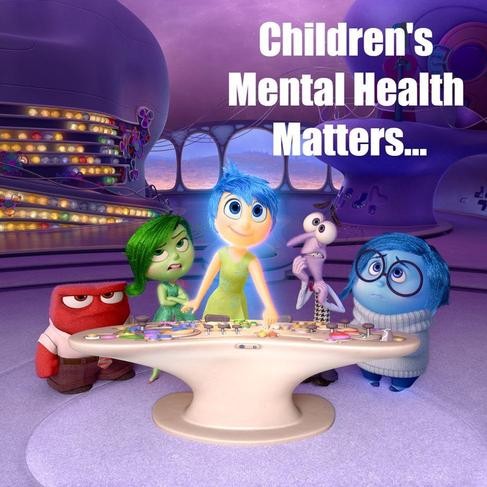What is 'mental health'?
A definition from the World Health Organisation
Mental health is a state of well-being in which every individual realises his or her own potential, can cope with the normal stresses of life, can work productively and fruitfully, and is able to make a contribution to her or his community.
Children's Mental Health In Context
- Over 50% of mental illnesses in children and young people start before the age of 14
- At least 1 in 10 primary school children will suffer from a mental health disorder at some point during their childhood
- Children spend over 7000 hours of their lives at primary school
These three facts combined place primary schools on the frontline when it comes to supporting children's mental well-being. Staff in schools are ideally placed to recognise and respond to the early signs of mental health difficulties in children. At Loxley C of E Community Primary School, we take this role very seriously.
What are we doing as a school to promote children's mental health and emotional well-being?
- Maintaining a vigilant safeguarding culture with comprehensive safeguarding induction training for all new staff
- Strengthening our distinct Christian ethos, which is nurturing and highly inclusive to all
- Encouraging and supporting staff in taking care of their own mental health and emotional well-being
- Treasuring and celebrating the unique preciousness of each individual child, to foster a strong and positive self-identity and self-esteem, e.g. through weekly Celebration Assemblies and Sharing Worship together
- Raising children's awareness of their own mental health and the mental health of others, e.g. through Collective Worship/Assembly
- Recognising and rewarding children's attitudes, efforts and behaviour as well as their achievements, e.g through our 'Catch Me' card system and House Points
- Offering a comprehensive PSHE and RSE curriculum which provides all children with regular opportunities to explore and discuss a wide range of human emotions and relationships
- Annually teaching our well-established Protective Behaviours Programme to empower all children to know when and how to seek help with their worries, no matter how small
- Providing regular training for all staff which shapes and strengthens their practice, particularly in relation to pastoral care, e.g. the Emotion Coaching approach to managing children's behaviour which has shaped our new
- Emotion and Behaviour Regulation Policy
- Providing opportunities for regular physical activity, which is proven to support mental health and emotional wellbeing, eg PE sessions, The Golden Mile, Football Club, access to equipment to encourage physical activity at playtimes
- Providing regular opportunities for children to learn outdoors, e.g. at our weekly Forest School sessions and commitment to active learning, including in the outside areas available to us.
- Building reflection and mindfulness practice into our timetables - this helps children to build a bank of calming and relaxing practices and strategies to draw upon throughout their lives
- Giving our pupils a voice by frequently asking them for their feedback and ideas, and valuing and acting upon their responses, e.g. through the School Council, Pupil Conferences, Collective Worship Team etc.
- Offering a wide range of extra-curricular opportunities to help children to explore and develop their talents and interests, from creating comics to table tennis and mindfulness activities
- Making strategic spending decisions which support our vision of each individual child being enabled to flourish, e.g. by buying into a range of external services to come into school and support vulnerable pupils, such as SEND Supported
- Developing very close working partnerships with families and providing additional support for individual parents of families who are struggling, e.g. through the Early Help process
- Offering targeted support and making appropriate referrals where children are struggling with their mental health and emotional well-being
- Auditing our current practice in relation to children's mental health and well-being to build on areas of strengths and identify further areas for development
Find Help...
If you are worried that your child may be struggling with their mental health, please do talk to a member of staff. Further information and support can also be found via the following...

